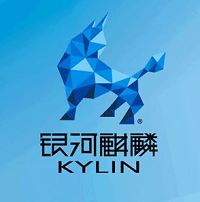Kylin Operating SystemIn this article, you will learn about the Kylin Operating system with its history and versions. What is Kylin Operating System?
Kylin OS is an Os that was developed in 2001 by scholars at the People's Republic of China's National University of Defense Technology. The name was inspired by the mythical beast qilin. It was based on the FreeBSD OS. The initial Kylin OS versions were designed and developed for utilization by the Chinese military and other government entities. Kylin became Linux-based with version 3.0, and a new version dubbed NeoKylin was introduced in 2010. NeoKylin will be compatible with over 4,000 software and hardware products by 2019, and it will be pre-installed on most PCs sold in China. Kylin and Neokylin have a combined market share of 90% in the government sector. Canonical, Inc. and the Chinese government signed a deal in 2013 to build a version of Ubuntu for ordinary Chinese desktop and laptop users. Ubuntu Kylin is the name of this version, which is based on the Ubuntu Linux system. Kylin OS v10 was launched in August 2020. It "supports Google's Android ecosystem" and is compatible with more than 10,000 hardware and software devices. Versions of the Kylin Operating SystemThere are various versions of the Kylin Operating System. Some of the main versions of the Kylin Operating System are as follows:
FreeBSD KylinKylin's development began in 2001 when the National University of Defense Technology was tasked with creating an OS as part of the 863 Program, which aimed to make China technology-independent. The goal was to "enable a variety of server platforms to achieve high availability, performance, and security while adhering to international UNIX and Linux OS standards". It was developed using a hierarchy architecture that included "a fundamental kernel layer similar to Mach, a system service layer similar to BSD, and a desktop experience similar to Windows". UNIX standards created it to work with Linux applications. The "China Military Online" (a website sponsored by the Chinese People's Liberation Army's PLA Daily) announced the successful development of the Kylin OS in February 2006. It was claimed that it is the first 64-bit operating system with a high-security level (B2 class). It also claimed to be the first OS without a Linux kernel to be recognized by the international Free Standards Group as a global standard. In April 2006, the Kylin OS was primarily based on FreeBSD 5.3. An anonymous Chinese student in Australia using the alias "Dancefire" conducted a kernel similarity analysis and discovered that the similarities between the two OS were 99.45%. During a keynote address at the international conference EuroBSDCon 2006, one of Kylin's developers admitted that the system was built on FreeBSD OS. According to a report submitted to the US-China Economic and Security Review Commission in 2009, Kylin aims to make Chinese computers impermeable to compete with cyberwarfare countries. According to the Washington Times Post, China has designed and developed a more secure OS for its millions of computer systems. It is already installed on government and military systems to render Beijing's networks impenetrable to US military and intelligence agencies. Kylin Linux (NeoKylin)In December 2010, China Standard Software and the National University of Defense Technology formed a strategic partnership to develop NeoKylin. China Standard Software develops the "NeoShine Linux" desktop series. NeoKylin will be used in national defense, government offices, energy, and other Chinese economic sectors. Bloomberg News reports that the northeastern city of Siping moved from Microsoft Windows to NeoKylin in 2014 as part of a government drive to shift computer technology to Chinese providers. In September 2015, Dell announced that NeoKylin was now installed on 42 percent of the personal computers it sold in China. The Tianhe-1 supercomputer is powered by 64-bit Kylin Linux, which is a high-performance parallel computing OS with power management and high-performance virtual computing capabilities. The latest Tianhe-2 also uses Kylin Linux. Ubuntu KylinIn 2013, Canonical and the People's Republic of China's Ministry of Industry and Information Technology agreed to develop an Ubuntu-based Linux operating system with features customized to the Chinese market. According to Ubuntu Kylin, it is a limited continuation of China's Kylin operating system. It's designed to work on both desktop and laptop PCs. Ubuntu Kylin 13.04 was the first official release on April 25, 2013.
Next TopicParrot Operating System
|
 For Videos Join Our Youtube Channel: Join Now
For Videos Join Our Youtube Channel: Join Now
Feedback
- Send your Feedback to [email protected]
Help Others, Please Share









